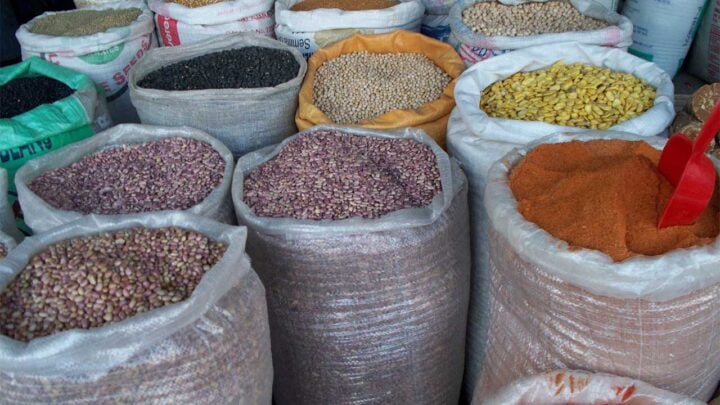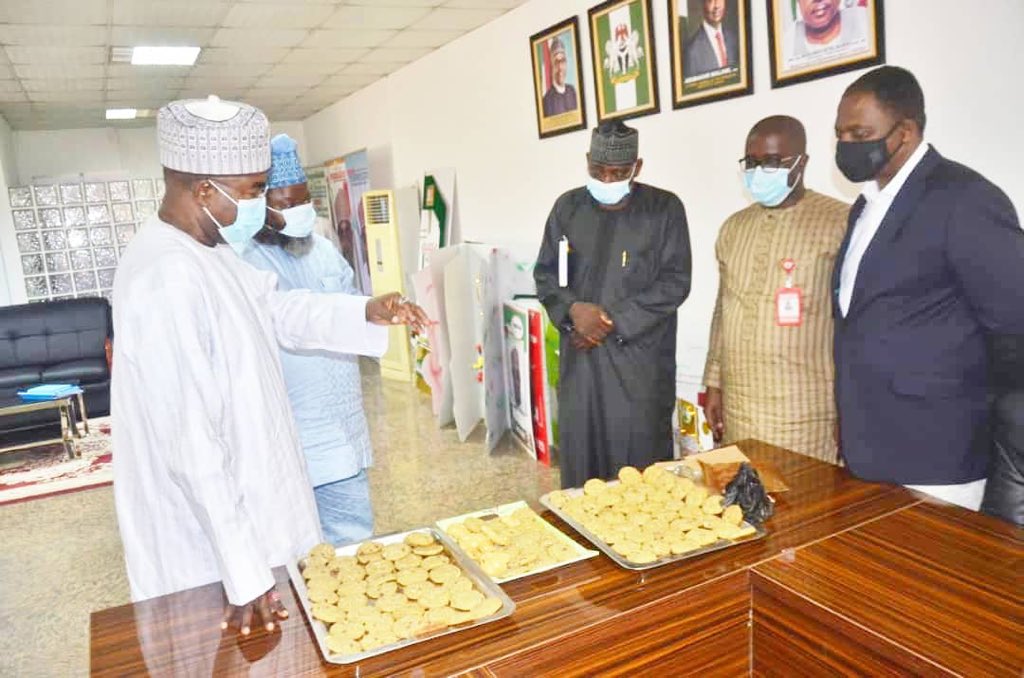SBM Intel, a geopolitical research firm, says food prices have remained high in Nigeria because of reduced local production and exchange rate risk.
This is contained in its latest Jollof index report for first quarter of 2021.
The report also identified constraints such as high energy tariff and poor harvest as factors stoking food prices.
The Jollof index covers prices of commodities in 13 markets across the six geopolitical zones.
Advertisement
The commodities include rice, curry, thyme, Knorr seasoning, groundnut oil, turkey/chicken (poultry), beef, seasoning, pepper, tomatoes, salt and onions.
The report comes after the National Bureau of Statistics (NBS) announced that food inflation increased by 1.16 percent on a year-on-year basis from 21.79 percent in February to 22.95 in March.
“The average cost of making a pot of jollof rice rose by 7.8 percent between March 2020 and March 2021,” the report read.
Advertisement
“A bag of rice, one of Nigeria’s staples, costs N27,000 – N35,000 which is higher than the minimum wage (N30,000) and the average monthly cost of living in the country (N43,200).
“Reduced local production, exchange rate fluctuations, poor harvest due to adverse weather conditions, high cost of energy (electricity/transport) tariffs are some of the reasons why food prices have remained high.
“Some of the Jollof rice ingredients ‘rice, onions, tomatoes’, have witnessed reduced local production because of protracted conflicts and terrorist attacks on farmers.
“As a result of these incidents, several farmers are leaving the countryside and moving to the cities to take up menial jobs.
Advertisement
“Another reason why prices have remained high is the high exchange rate of N410/1$ and up to N475/1$ in the parallel market, Jollof constituents like tinned tomatoes, rice, turkey and seasoning are affected by the exchange rates.
“Thirdly, flooding destroyed several hectares of rice farms across the country, up to 500,000 hectares were destroyed in Kebbi alone.”
The research firm said another reason for increase in foodstuffs is that transportation costs have not reduced since they were increased during the introduction of the COVID-19 protocol.
It said based on its analysis, Nigeria may experience famine in the nearest future if production, consumption and political-economic dynamics remain the same.
Advertisement
It advised that a holistic regulatory approach that shifts from attaining food self-sufficiency to pursuing food security; addresses conflict and security based issues in prime agricultural regions; overhaul infrastructure from farm to market; and modernises farming are put in place.
SBM Intel further said that anything sort of this will condemn Nigeria to its current slippery glide towards a more problematic state of affairs, adding that a country that cannot sustainably feed its people is flirting with a day of reckoning.
Advertisement
Add a comment






